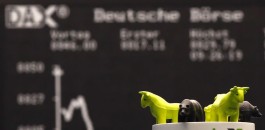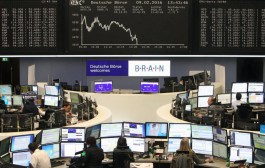The performance of the non-oil private sector in the UAE slowed down slightly during the month of December, with concerns about the impact of global economic problems on the local economy in the new year.
The Purchasing Managers' Index, which measures the performance of the non-oil private sector in the UAE, issued by S&P Global, decreased today, Wednesday, during last December, to record 54.2 points, compared to 54.4 points in November.
The index still indicates an improvement in the performance of the non-oil private sector in the UAE, above the neutral level of 50 points, according to Zawya.
According to the report, quoting David Owen, an economist at S&P Global, companies were less confident that production growth would continue in 2023 as expectations for next year fell to the weakest level since February 2021 amid fears that economic problems abroad will seep into the domestic economy.
Fears are increasing globally that tightening monetary policy and raising interest rates will cause a slowdown in the growth of the global economy, especially with the Russian-Ukrainian war approaching its second year, and fears of a resurgence of the coronavirus outbreak in China with the increase in cases last month.
During December, the performance of the private sector witnessed a strong improvement, but at the weakest pace since January. The decline came for the second month in a row, which is the second lowest reading in 2022 after the 54.1 points recorded in January 2022, affected by the increase in production rates and new business at the slowest rate since December. September 2021, according to the report.
While the demand of local customers increased, export orders declined for the first time since August 2021. The UAE, one of the largest oil exporting countries, is betting on the private sector to diversify sources of income, while seeking to attract foreign investments, amid Gulf competition for capital.
Non-oil producing companies in the UAE benefited from the partial decrease in production costs in December, and average production prices fell for the eighth month in a row, which encouraged them to cut prices at the fastest pace in 3 months.
As a result of the slowdown in growth, companies hired fewer numbers in December, and the number of employees rose at the lowest rate in 8 months, while companies were also encouraged to increase inventories, as growth in input purchases slowed.








































